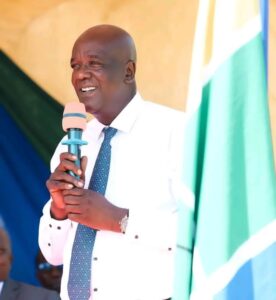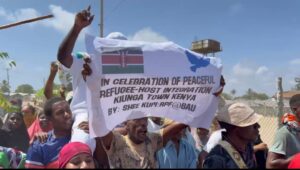Mombasa Journalists Trained on Digital Rights and Duties
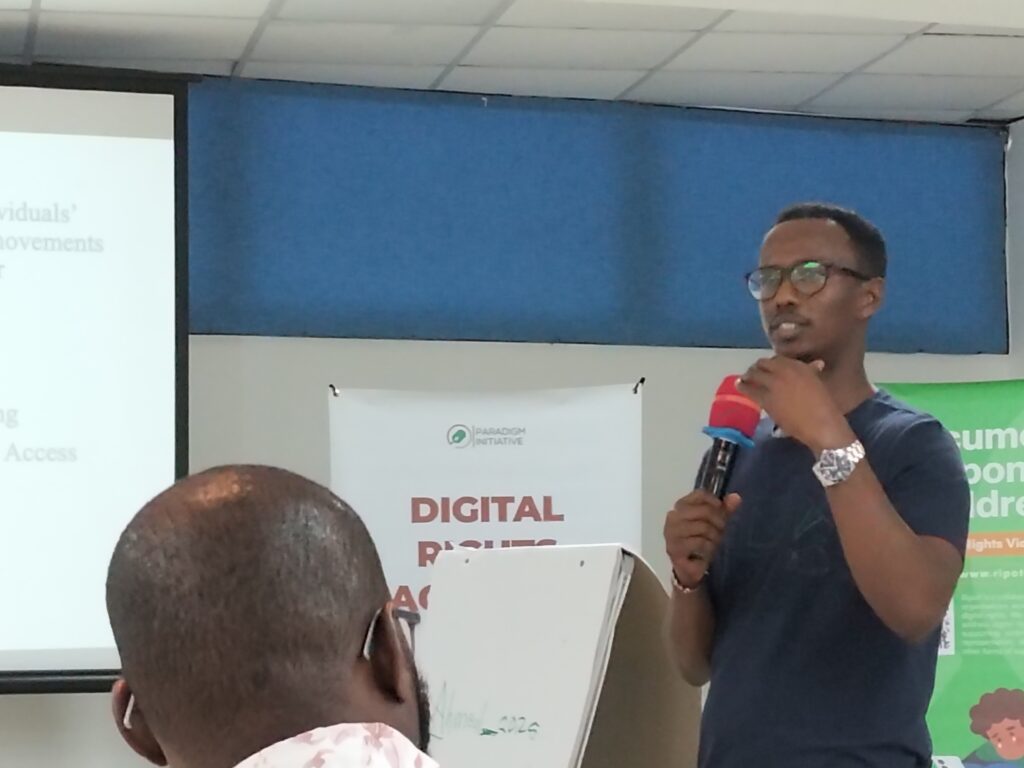
Ahmed Shire expert Defenders Coalition. (Photo By Mwakwaya Raymond)
By Mwakwaya Raymond
Email, thecoastnewspaper@gmail.com
Media freedom space in Kenya expanded remarkably in 2010 when the current Constitution was promulgated. It created an environment where journalists and the media fraternity at large are able to exercise their roles of informing and educating the public without undue interferences from both the public and the government of the day.
The old Constitution contained more restrictions than enablers because it, for instance, it subjected media to direct controls by state agencies such as police, parent ministry, and ministries in charge security and defence. This made many journalists and lawyers to refer Section 79 of the old Constitution as “a law of exemptions rather than a granter of media freedom”.
However, today, courtesy of the Constitution 2010, Kenya boasts of a conducive and elaborate legal framework for its Fourth Estate, that is the Media.
It enables the media to operate under very minimal regulations from outside forces.
Several articles in Constitution and acts of Parliament (chiefly Media Council Act and the Kenys Information and Communication Act both of 2013) give the Media freedom to conduct its activities in such a manner that outlaws any potential gagging or muzzling by outside forces.
The Constitution Article 33 on Freedom of Expression gives Journalists and Media the power to express their opinion without fear or favour through various media programs in various channels, be it print or broadcast. Article 34 grants the freedom to publish and to broadcast news with full editorial independence.
Since freedom comes with responsibility the public and the government expect Journalists to conduct themselves with utmost decorum so as to set the agenda for the day.
Article 35 on Access to Information Act along with an Act of Parliament on the same and 2023 Regulations also give journalists the power to seek any information or clarification from a public office on any matter of public interest.
Though quite a large section of government officials are very much aware of the existence of this freedom of information laws, it is unfortunate that some still try to lock out journalists from accessing the public offices to gather information on public interest matters. This is common where the story sought implicates certain senior officials of the government in, say, graft or grabbing of public assets.
In most cases Journalists are persecuted for just playing their roles despite the Constitution granting such powers to do so.
Another critical law is the Data Protection Act (2019), which allows Journalists, like any other citizen, to enjoy some privacy in exercising their mandate. However, this is not the case, as the government has been surveying whatever is stored in particular gadgets and email addresses infringing the rights of Journalists in total disregard of the law and the constitution.
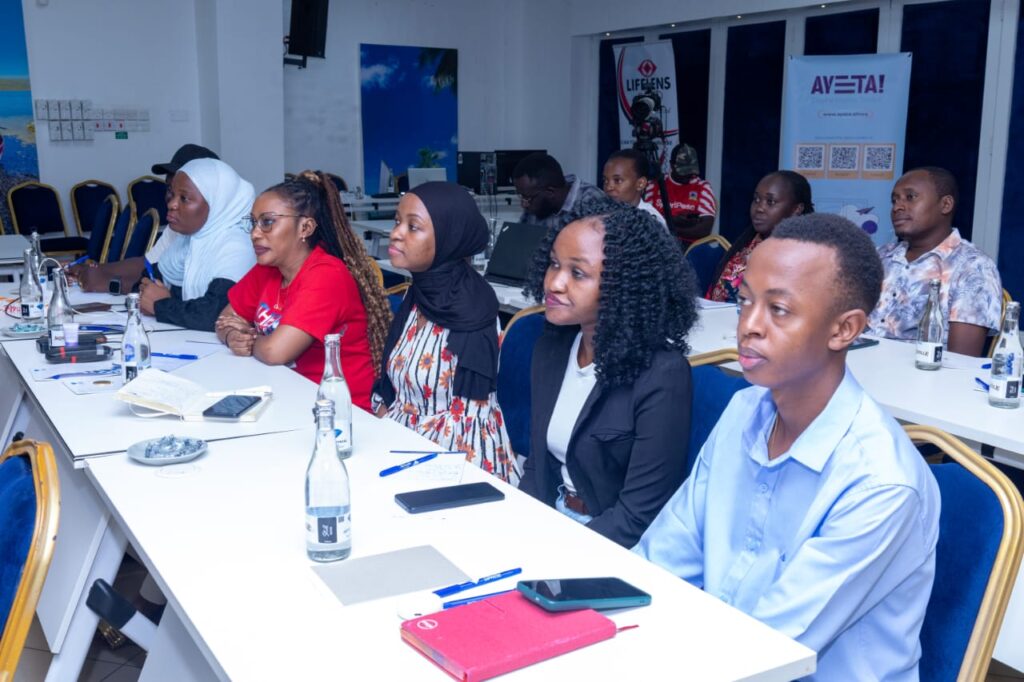
It is in this disregard for the law that various civil societies as well as human rights defenders have come to the rescue of the Journalists in the country.
Paradigm Initiative in collaboration with the Mombasa Press Club (MPC), has come in handy to try bail out Journalists in Mombasa from this situation through a special training.
The Paradigm Initiative (PI) organized a two day training that equipped the media practitioners with essential knowledge and tools to safely operate in the digital media landscape.
The training significantly enhanced knowledge and skills of Journalists in Mombasa on their Digital Rights and Security practices. The training also covered data protection, data privacy, digital surveillance, cyber threats, and legal frameworks surrounding digital rights in Kenya and East Africa.
According to Ahmed Shire an expert from Defenders Coalition, digital safety is essential for journalists, particularly when reporting on sensitive topics.
His sentiments were echoed by Mirriam Wanjiru, Programmes Officer at Paradigm Initiative East Africa, who emphasized the need to empower Journalists with knowledge and tools to protect themselves and their sources as well.
The convener
Mombasa Press Club under the leadership of Chairman Omar Abdallah lauded the sponsors saying terming the training a Good given chance for Journalists to be equiped with the relevant knowledge in readiness to the forthcoming general election.
“We are happy for you thought it better to grant us this worthwhile training, it will go along with the aspirations of many of us,” Omar said.
The training achieved its purpose for it will contribute to a stronger, more secure media environment and building resilience in the media sector he noted.
Journalists are expected to carry out their duties and mandate more safely and effectively after being empowered with digital rights and security knowledge.
Lately a section of the media has come under sharp criticisms for not playing their roles within the prescribed lines.
Journalists have repeatedly been accused of bullying other computer users in total disregard for the computer misuse and cyber crime Act.
Chief Justice Martha Koome recently said in Mombasa that cyber bullying was paramount and that social media was adversely misused with the intent to even bring down or jeopardize the activities of the judiciary.
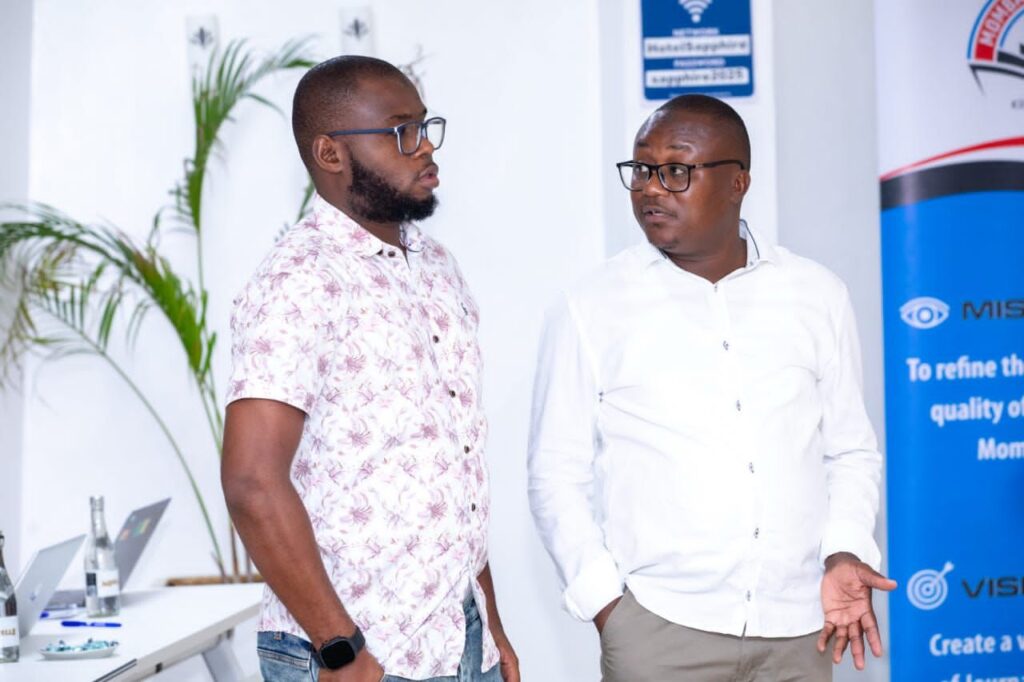
So far several complaints have been filed to the Media council of Kenya against certain Media houses or particular Journalists for contravening the rules of the game.
This scenario then calls for the need for frequent capacity building for Journalists with such like training as PI’s.

